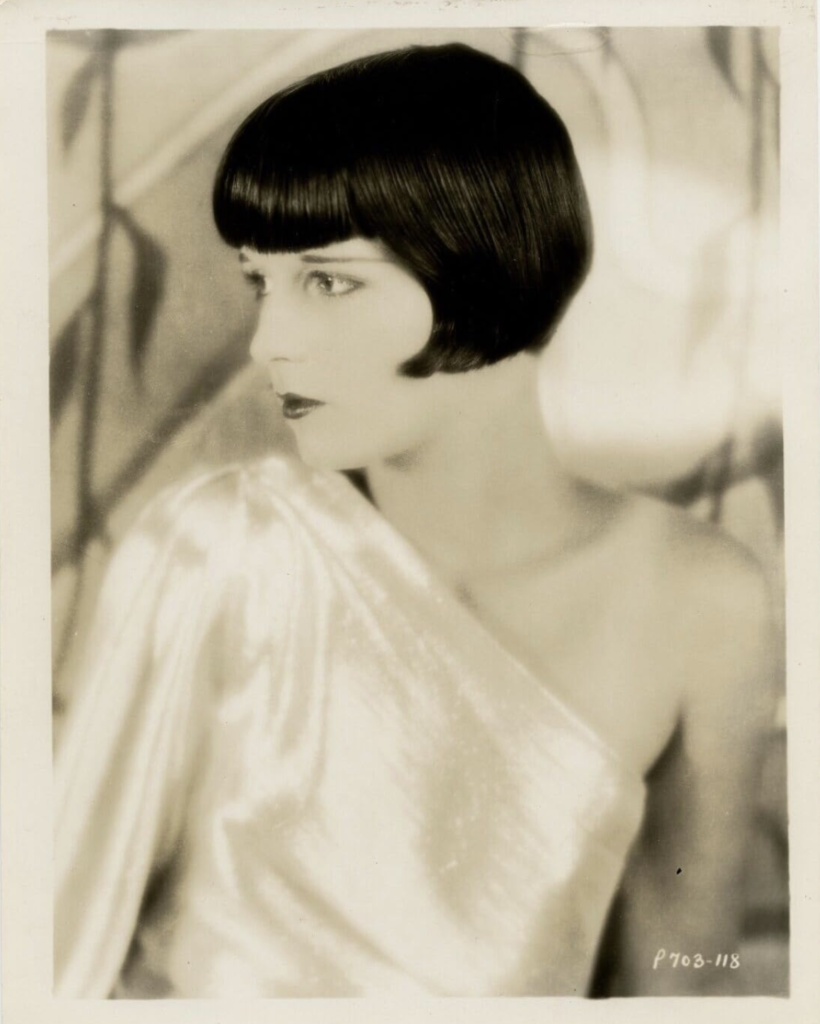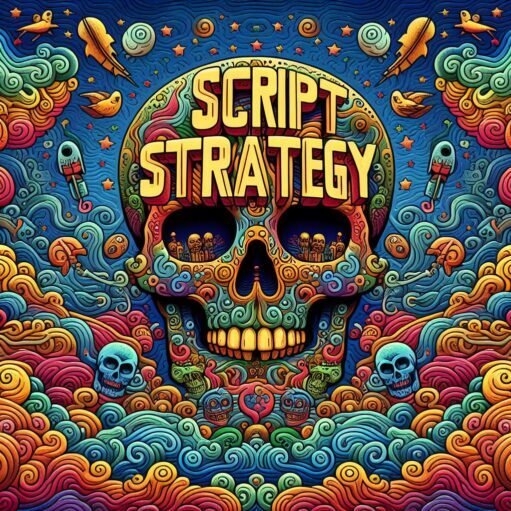Five Lesser-Known Books for Screenwriters—and Why They’re Valuable
(Hey everyone, if it’s an Amazon link here it’s an affiliate link. Click if you like or, you know, don’t.)

Everyone bloody well knows Save the Cat, Story, and The Writer’s Journey. Some of you may even have read Into the Woods (which is actually great, by the way). However, in your screenwriting journey it’s often useful to look into books that aren’t necessarily strictly about screenwriting.
Outside this core canon lies a world of lesser-known—yet deeply influential—books that can spark your creativity, challenge your assumptions, and–particularly in the case of Robert Rodriguez–remind you why you wanted to write in the first place.
Here are five books for screenwriters that offer amazing value even if they might not be the first thing that you’d expect when you look up “screenwriting books.” And, frankly, most of that stuff is pretty bad. (I’ve read it so you don’t have to!)
Each of the following books approaches storytelling from a different angle: memoir, interviews, criticism, and first-person survival. Let these books expand your sense of what screenwriting can be.
1. On Writing by Stephen King
Stephen King’s part-memoir, part-craft manual is a masterclass in storytelling fundamentals that screenwriters often overlook. Sure, Stephen King is not exactly a screenwriter (Maximum Overdrive, anyone?), but it’s hard to argue that he’s the baddest of the bad when it comes to telling gripping stories.
Key Takeaways for Screenwriters:
- Voice matters. King emphasizes clarity, rhythm, and honesty in your writing. Screenwriters often obsess over structure and visuals, but dialogue and narration are where voice shines.
- Read constantly, write daily. Screenwriters benefit from treating writing as a habit, not a bolt of inspiration.
- The truth beneath the fiction. King reminds us that all great stories grow from a seed of emotional truth—a powerful idea for screenwriters seeking to build grounded characters and plots.
Why On Writing Matters:
King’s book helps the reader think like an author—not in the sense of writing prose, but in committing to the lifestyle of a writer: authenticity, daily practice, and revision. Plus, if you struggle with self-doubt, it lets you know you’re not alone and provides the motivation to keep plugging away.
More words on the page, more stuff written.
2. Conversations with Wilder by Cameron Crowe
This extraordinary interview book between filmmaker Cameron Crowe (Almost Famous, Jerry Maguire) and the legendary writer/director Billy Wilder (Sunset Boulevard, The Apartment) is part oral history, part screenwriting seminar, and part love letter to cinema.
Key Takeaways for Screenwriters:
- Structure is simple; character is not. Wilder believed strongly in keeping stories clean, clear, and character-driven. He often wrote backwards—starting with the ending and reverse-engineering the plot.
- Dialogue has two functions: Every line must advance the plot at the same time as reveal character. Wilder is the master of doing both at once.
- Simplicity over showiness. There’s no fat in a Wilder script. As a director, Wilder only ever shot what he wrote: editing is done not in the editing booth or the camera, but on the page. Every scene, line, and movement is thought through to eliminate waste. Crowe highlights Wilder’s remarkable storytelling discipline over and over.
Why Conversations with Wilder Matters:
This book offers a rare chance to sit in on a dialogue between two generational talents. It’s a more updated–and for my money, more useful–version of Hitchcock/Truffaut.
Conversations with Wilder is a reminder that great screenwriting is a craft passed down through conversation, analysis, and respect. For writers focused on tight, character-based stories, this book is indispensable.
3. Lulu in Hollywood by Louise Brooks
This memoir-essay collection by silent film actress Louise Brooks goes in and out of print. It might seem an old-Hollywood curiosity, but I argue that Brooks’ stories–not to mention her remarkable prose–hold a lot of value for screenwriters.
Brooks, probably now best known for having the greatest haircut ever (oh, and also her role in Pandora’s Box), writes with wit, venom, and clarity about early Hollywood, the studio system, and the existential loneliness of fame. She’s also from Southeast Kansas, like me, and I appreciate her sardonic, plain-spoken Midwestern wit.
Brooks largely disappeared from view after 1938, with many assuming she had died. However, she was discovered alive, living in seclusion in New York City, by intrepid silent film historians in the 1950s. Her writing was largely from the 1950s through the 1980s, some 30 to 50 years separated from her renown.
Roger Ebert calls Lulu in Hollywood “one of the few film books that can be called indispensable.”
Key Takeaways for Screenwriters:
- Character over caricature. Brooks’ writing is filled with insights into the psychological makeup of real performers—she more or less originated the complex female protagonist, and her insights are still useful to create layered, complex female characters.
- Image and identity. Brooks explores how actors’ public personas are “written” by studios, tabloids, and fans—a chilling insight into performativity and stardom.
- Evocative style. Her prose reads like a noir novel: atmospheric, sharp, and visual.
Why Lulu in Hollywood Matters:
Particularly for anyone interested character studies, or the psychology of fame, Brooks’ work is an incredible resource.
Lulu in Hollywood also offers first-hand, perceptive, intelligent insight into how an actor develops a character from what is on the page. This book is invaluable for writers seeking to write roles that appeal to actors.
4. Cinema Speculation by Quentin Tarantino
Tarantino’s 2022 book is a hybrid of film criticism, personal memoir, and directorial philosophy. At its heart, though, is one consistent theme: Tarantino, hilariously, just fucking wants to rewrite the movies he watched growing up.
Key Takeaways for Screenwriters:
- Rewrite culture, not just scenes. Tarantino’s habit of mentally rewriting films is not just revisionist fan fiction—it’s a creative tool. It shows how he dissects structure, character arcs, and dramatic moments to see how they could be improved. He’s not going to change the actual released movie, but it shows–and you can see it in his own writing–how this skill can be used to refine, remix, and utilize characters, situations, and plot devices from other films in your own work.
- Taste builds voice. Tarantino’s unapologetic love for genre films informs every frame he shoots. For screenwriters, cultivating unique taste is as important as learning format. It’s hard to deny the correlation between the quality of a writer and her depth of film knowledge. Is it causation? Perhaps not, but there’s no harm in learning more.
- Criticism is education. Faced with Tarantino’s strong opinions, writers are encouraged to develop their own rejoinders. Agree or disagree, you’ll think harder about the choices screenwriters make.
Why Cinema Speculation Matters:
Most screenwriting books seek merely to teach you how to write a film. What we need is books for screenwriters that teach a writer how to think like a filmmaker. This is one of them.
Cinema Speculation teaches you how to think like a writer and director. It encourages you to engage with cinema critically and obsessively—not passively. That mindset is invaluable for screenwriters trying to develop a personal style.
5. Rebel Without a Crew by Robert Rodriguez
This gritty account is a literal daily diary of how Rodriguez made his debut feature El Mariachi for $7000 (on 16mm film!). It is a masterclass in resourcefulness, hustle, and vision.
Key Takeaways for Screenwriters:
- Write what you can shoot. Rodriguez wrote around his limitations: available locations, actors, and equipment. He was forced to make decisions based on what was there, not what he wanted. Surprisingly, even to him, this led to numerous decisions–made out of necessity–that others praised as creative and innovative.
- DIY screenwriting works. You don’t have to wait for permission. Use simple structures. Try things. Get messy. Rodriguez makes it clear that your first script easily can be your first film. And then just make it so you can get all the bad movies out of your system sooner rather than later!
- Fearless revision. Rodriguez’s journal entries show how scenes and story beats evolved constantly during production—always remember that writing is a living, breathing process. The writing isn’t over until the film is in the can. Or out of the editing room. Or maybe it’s still not over.
Why Rebel Without a Crew Matters:
This book provides unparalleled inspiration for anyone looking to make a film, write a script, or even start a business. Embrace constraints. Put yourself in situations where you have nothing better to do. Make choices based on what’s available rather than focusing on what you don’t have.
Do things quickly and prioritize action. In the film and in your career. Rebel Without a Crew is raw, real, and motivating. It also underscores that the screenplay is just the beginning of the filmmaking journey.
Storytelling Beyond the Screenwriting Section
What connects these five books for screenwriters is not that they offer formatting tips or beat sheets. In fact, none of them do. Sure a couple of them have bullet-pointed lists, but that’s not where the action is. The stories are where the action is.
Each of these books provides a way of thinking about storytelling that many screenwriting manuals often miss. This is what these books for screenwriters do:
- King shows you how to write truthfully.
- Wilder shows you how to structure simply and effectively.
- Brooks teaches you how character is constructed and consumed.
- Tarantino reminds you to engage with film as a critic and fan.
- Rodriguez proves that constraints can breed brilliance.
Sometimes the answer isn’t more structure—it’s a different perspective. Each of these books for screenwriters offers a different perspective from a unique voice.
Let me know which one you enjoyed the most!
